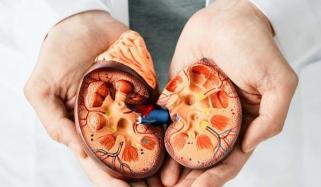
Vitamin E is a fat-soluble vitamin that is quickly absorbed by the body. It is primarily found in several food products such as vegetable oils, meat, poultry, eggs, and more.
It’s an essential vitamin required for the proper function of multiple organs in the body. It serves as an antioxidant and is also used to treat several conditions.
Vitamin E uses
Here are a few uses and effectiveness of vitamin E:
Alzheimer disease:
Vitamin E supplements may not prevent the development of Alzheimer’s disease, a neurodegenerative disorder.
However, it slows down memory loss in people already suffering from it.
Menstrual cramps (dysmenorrhea):
Oral intake of vitamin E two to three days before and after menstruation may help reduce pain and menstrual blood loss.
It also helps in treating an inherited disease which leads to the breakdown of red blood cells in stimulation to stress (G6PD deficiency).
Consuming vitamin E, alone or together with selenium, may benefit individuals with this condition.
Special precautions
Pregnancy:
Consuming vitamin E during pregnancy is safe, but it should be avoided during the early weeks of the gestational period. However, it’s mandatory to consult your doctor.
Children:
Oral consumption of vitamin E is safe in children. However, it should be avoided to give doses of vitamin E more than the daily upper limit.
These limits are 300 IU in children 1-3 years of age, 450 IU in children aged between 4-8 years, 900 IU in children above the age of 9-13 years, and 1200 IU in children above 14-18 years.
Bleeding disorders:
Vitamin E exacerbates bleeding disorders, if you are already suffering from it, avoid consuming vitamin E supplements.
Side effects of Vitamin E
Here are a few adverse effects of vitamin E:
- Upset stomach
- Belly cramps
- Tiredness
- Weakness
- Headache
- Blurred vision
- Rash















